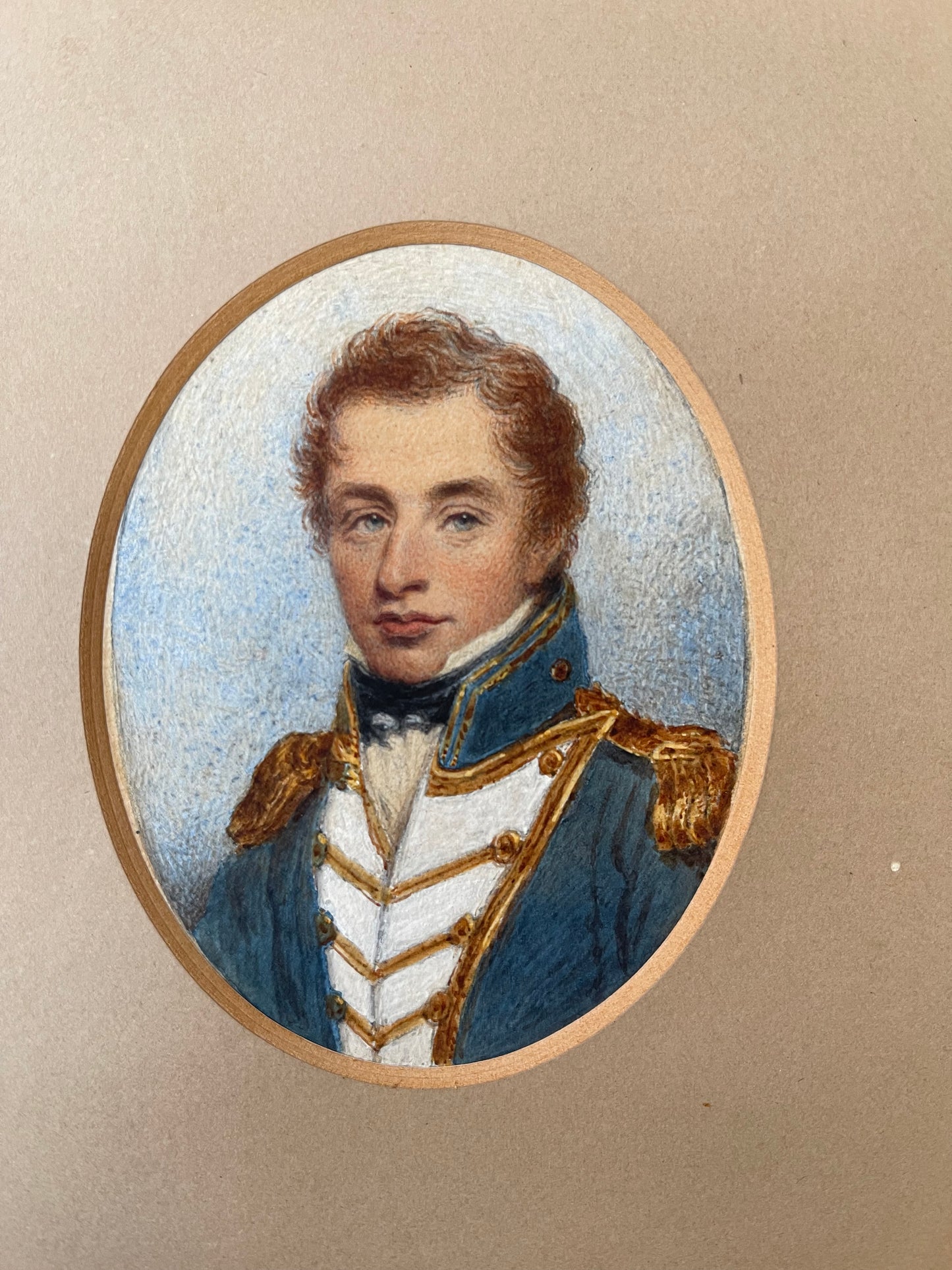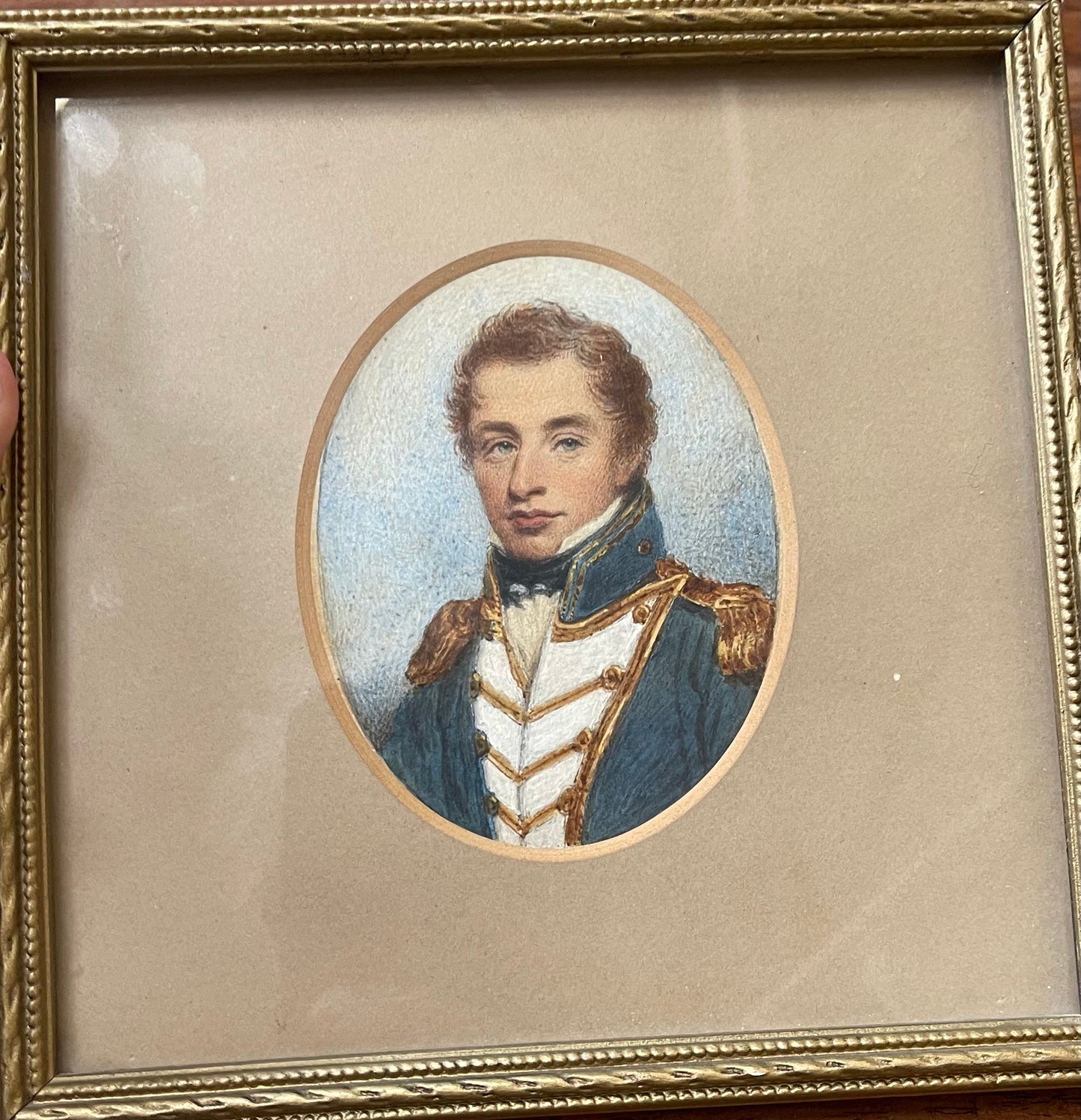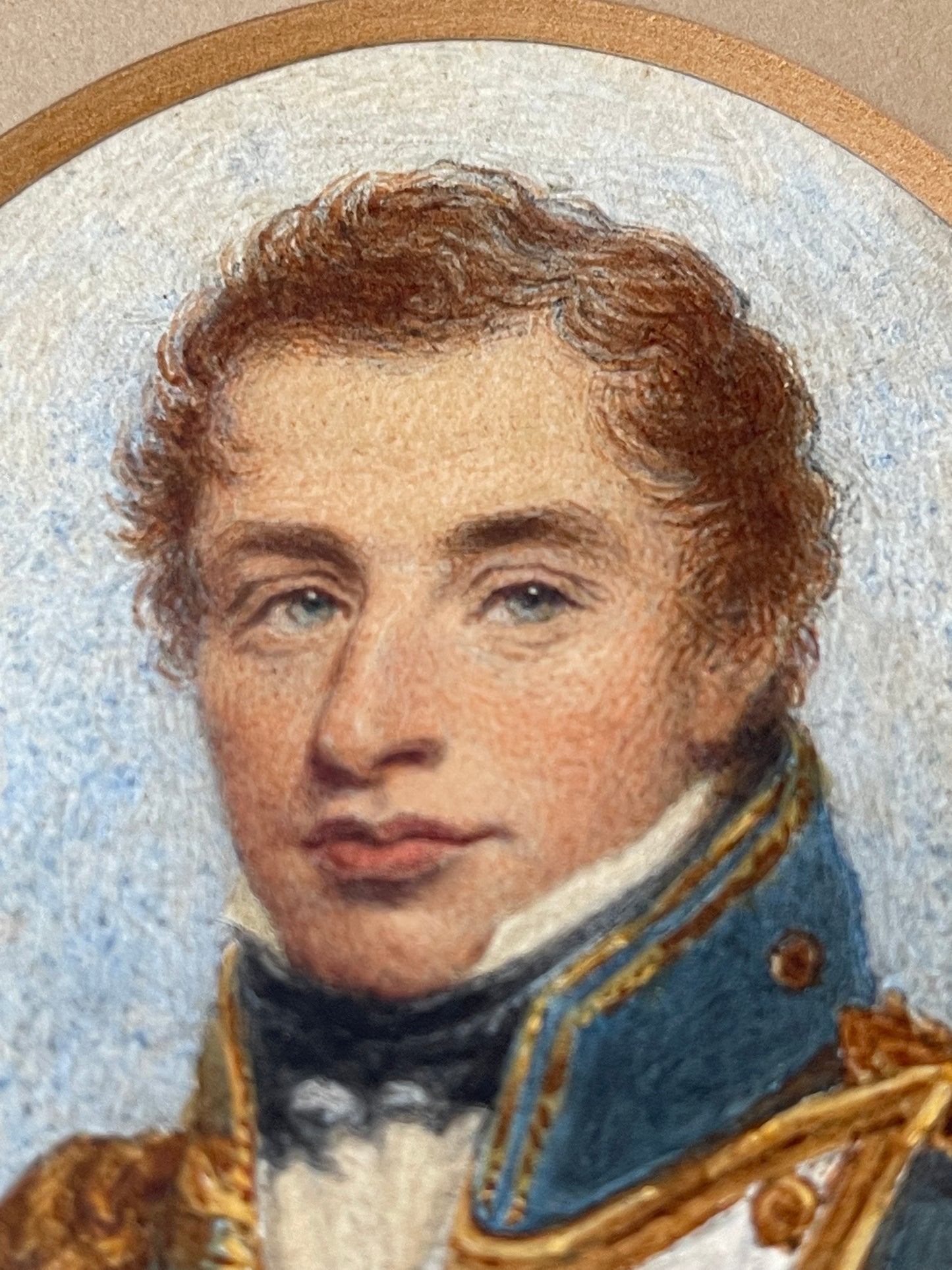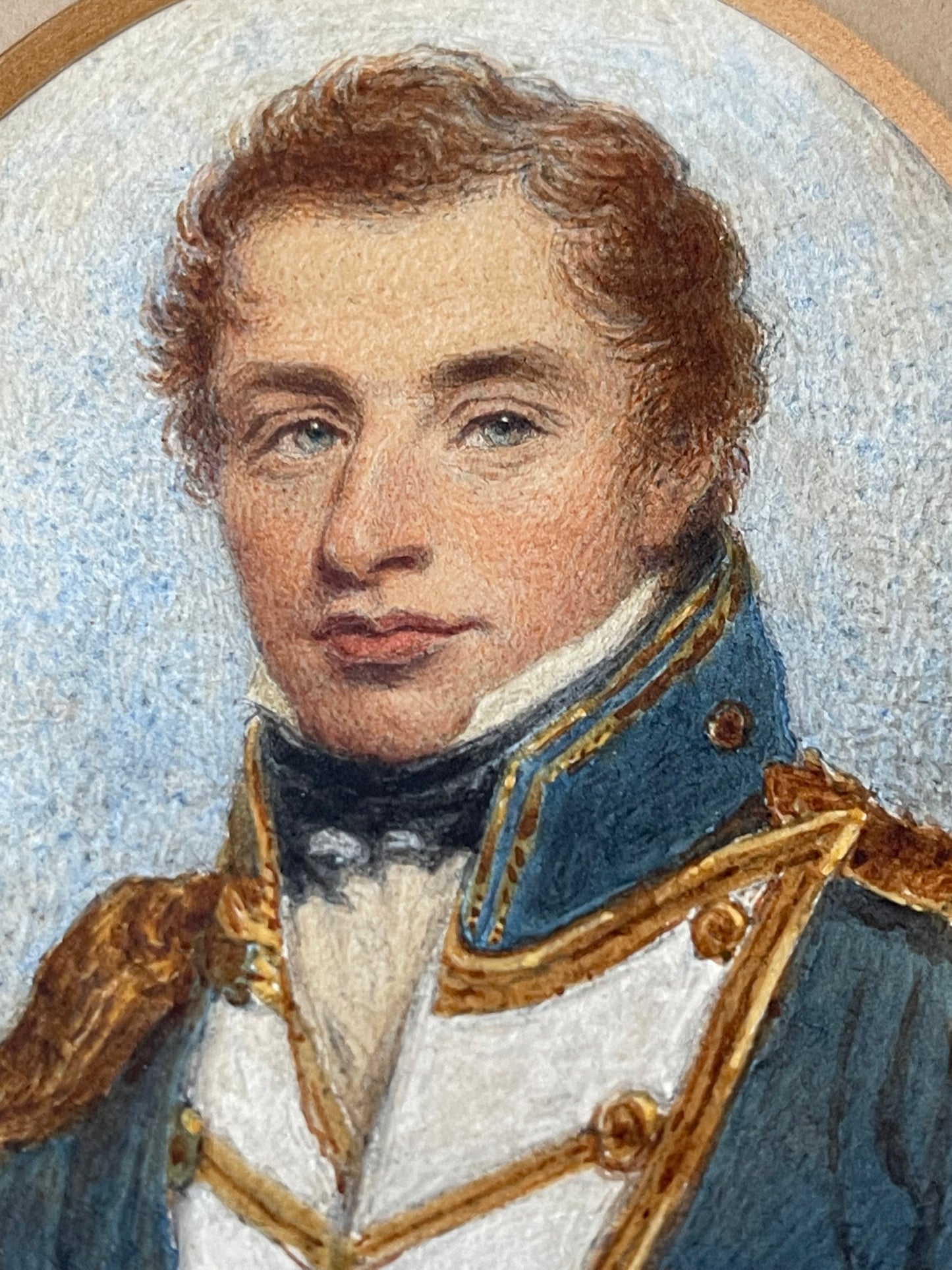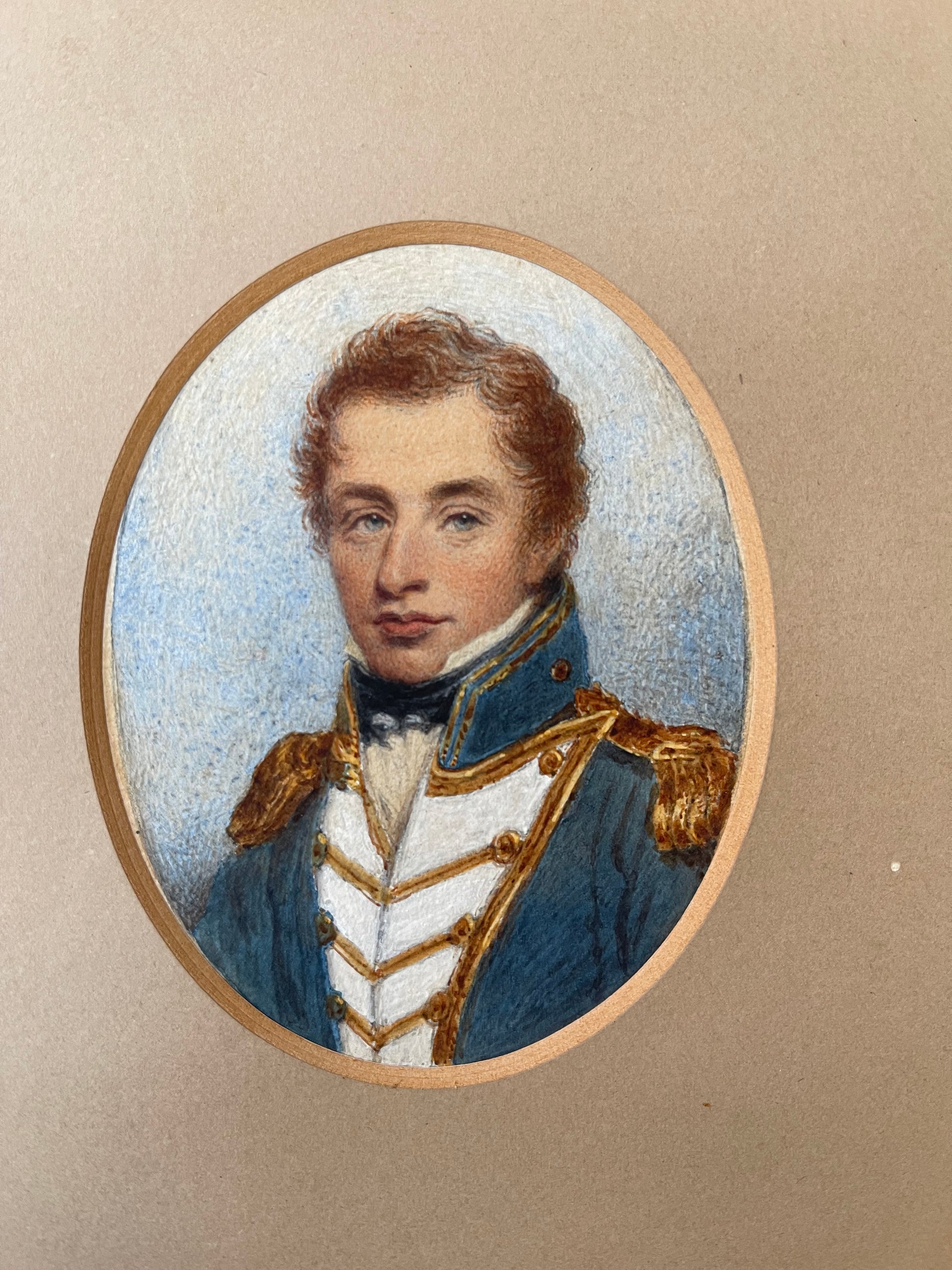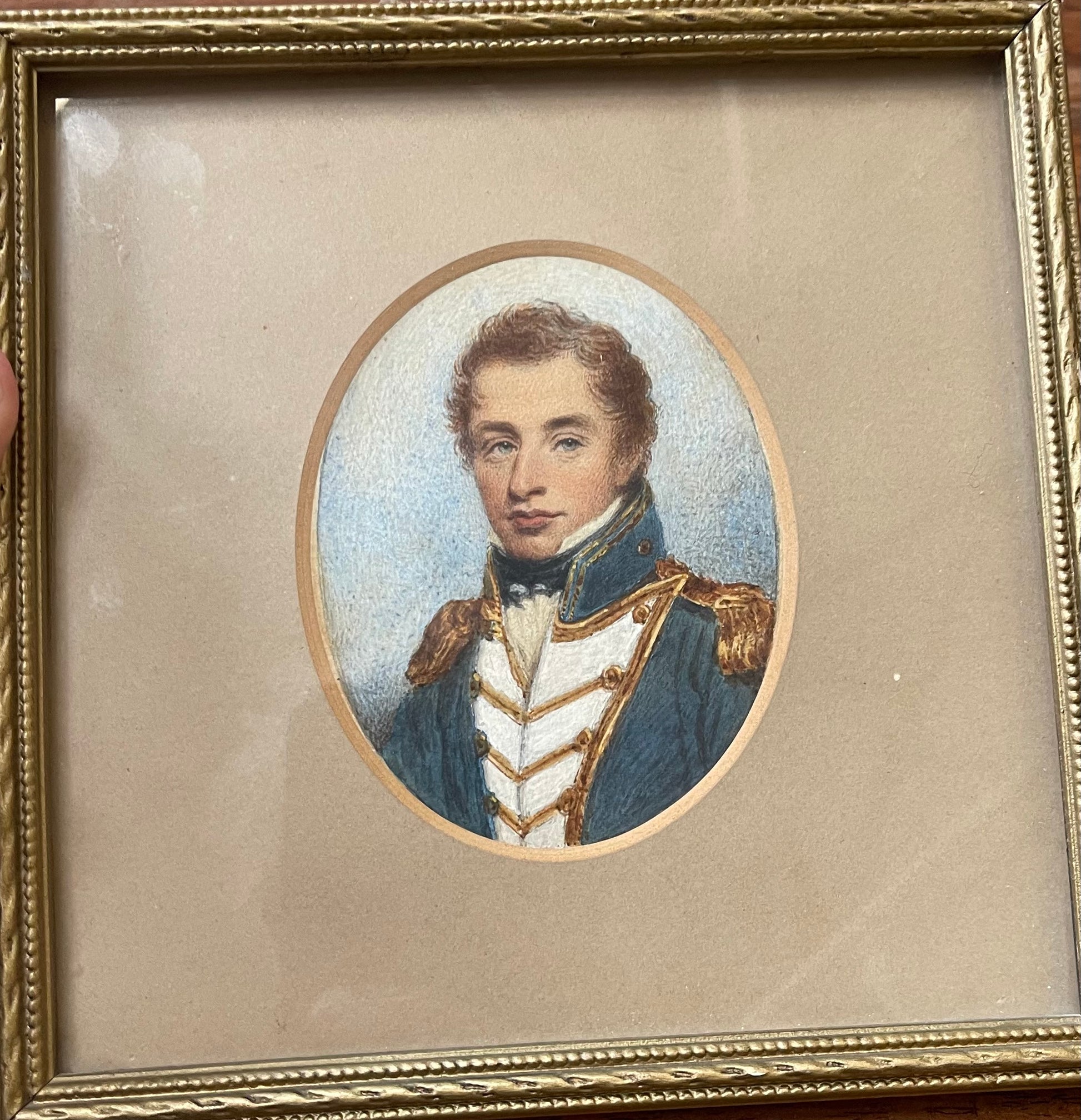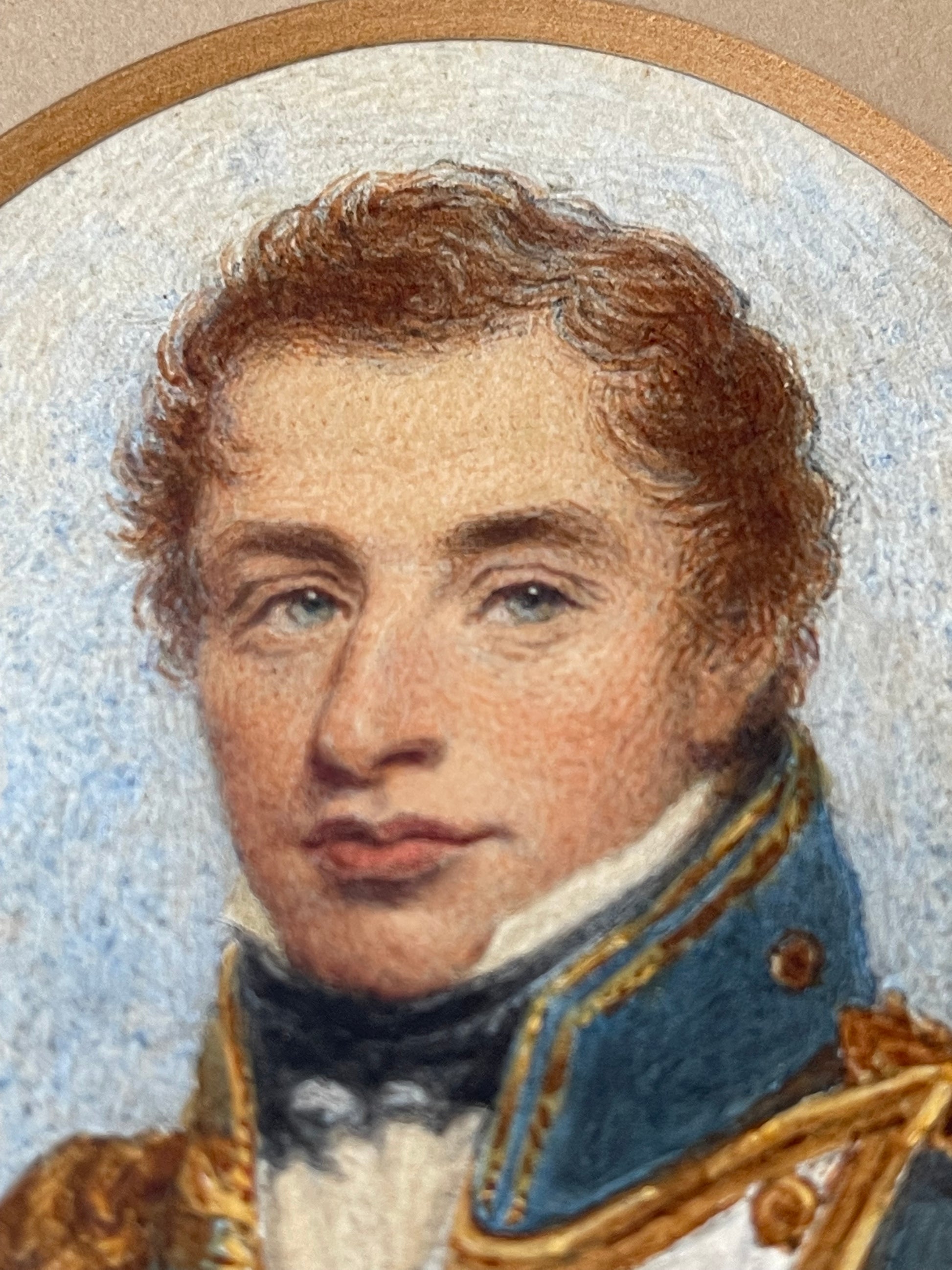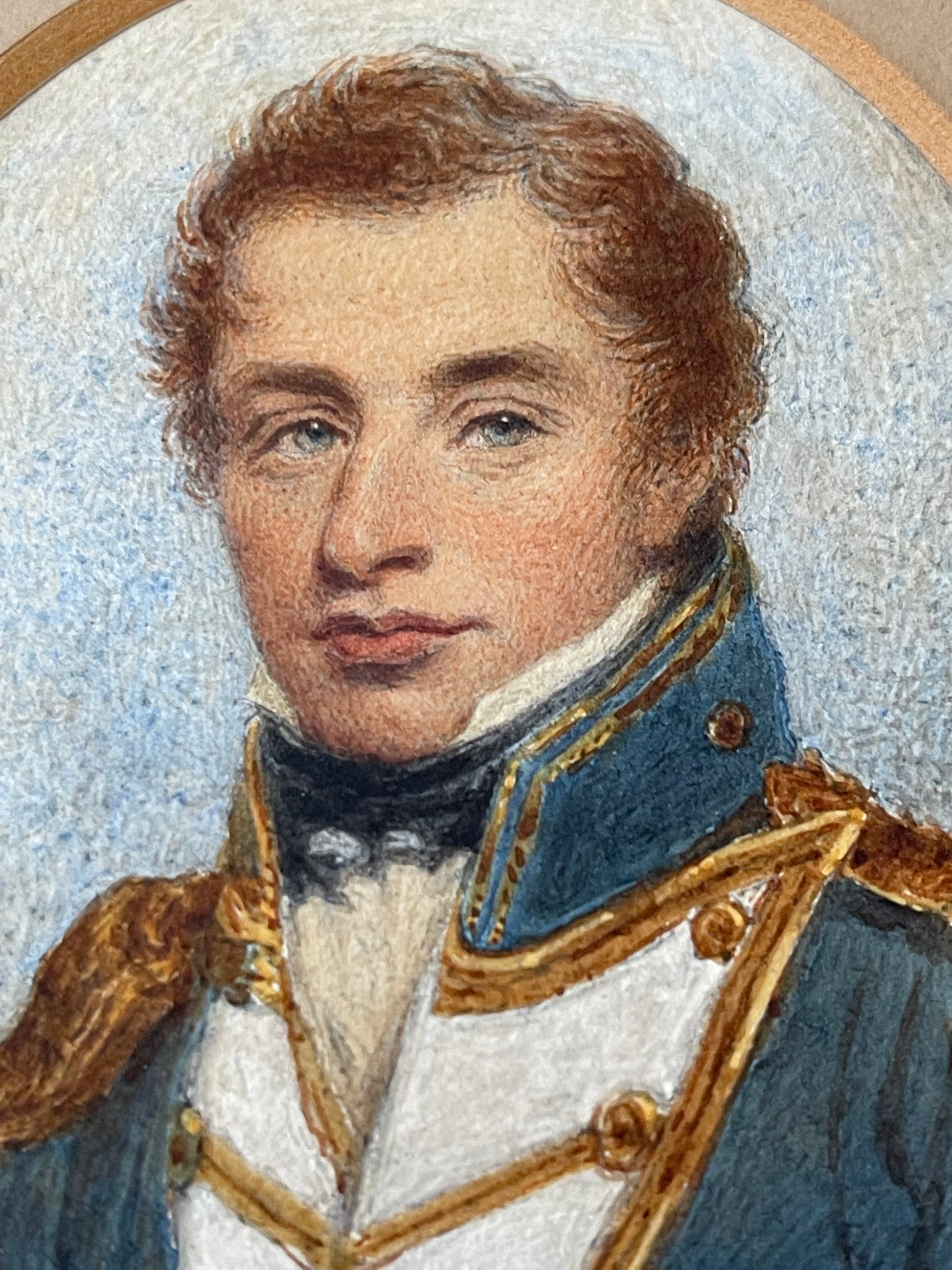C1810 MINIATURE PORTRAIT ON CARD OF LT JAMES SCOTT 1790-1872 ROYAL NAVY FOUGHT IN AMERICA
Regular price
£450.00 GBP
Regular price
Sale price
£450.00 GBP
Unit price
per
Tax included.
Couldn't load pickup availability
C1810 MINIATURE PORTRAIT ON CARD OF LT JAMES SCOTT 1790-1872 ROYAL NAVY FOUGHT IN AMERICA
LT JAMES SCOTT (LATER ADMIRAL SCOTT)
Watercolour on card circa 1810
Unknown artist
Size 16 x 16cm frame
Size 9 x 7cm image
A beautifully painted early 19th century watercolour on card of the then Lt James Scott 1790-1872. This pictures him as a Lieutenant (appointed 1809).
Admiral Sir James Scott, KCB (18 June 1790 – 2 March 1872), was a British Royal Navy officer. He served in the Napoleonic Wars, the War of 1812, and the First Opium War.
Scott was born in London, the son of Thomas Scott of Glenluce, Wigtownshire, Scotland. He joined the Navy in August 1803 as a first-class volunteer on board the frigate Phaeton, under the command of Captain George Cockburn. After taking the British Minister Plenipotentiary, Anthony Merry and his suite, to the United States, Phaeton sailed to the Cape of Good Hope, for operations against the French on the Isle de France. Scott was rated as a midshipman from September 1804. He returned to England in January 1806 with Captain Cockburn in the frigate Howe, with Marquess Wellesley aboard, returning from his time as Governor-General in India.
In February 1806 Scott joined the frigate Blanche, under Captain Thomas Lavie, and was present, on 19 July, at the capture of the French frigate Guerrière off the Faroe Islands. He rejoined Captain Cockburn in September to serve aboard Captain, cruising among the Western Islands and off Rochefort. From July 1807 to April 1808 he served aboard the 74-gun Achille, commanded by Captain Sir Richard King off Ferrol. He then rejoined Cockburn again to serve as master's mate aboard Pompee, which sailed to the Caribbean in late 1808, and took part in the reduction of Martinique in early 1809, during which Scott was slightly wounded.
He returned to England with Cockburn in Belleisle carrying the captive governor and garrison. Scott then took part in the Walcheren Campaign, commanding a gun-boat during the attack upon Flushing, and for his conduct he received a letter of thanks from Rear-Admiral Sir Richard Goodwin Keats, and on 16 November 1809 was appointed lieutenant aboard the sloop Fleche, Captain George Hewson. Scott was in her when she was wrecked off the mouth of the Elbe on 24 May 1810. In July he was appointed to the Barfleur on the Lisbon station, and in October joined the ship sloop Myrtle serving under Captain John Smith Cowan stationed off Lisbon, at the defence of Cádiz, and in the Mediterranean, and under Captain Clement Sneyd on the west coast of Africa until April 1812.
American War
Scott rejoined his former captain, now Commodore Cockburn, in Grampus at Cádiz. In August 1812 Cockburn was promoted to rear-admiral and Scott followed him into his flagship Marlborough, which in November sailed to the coast of North America to take part in the War of 1812. On 3 April 1813, Scott commanded one of Marlborough's boats as part of squadron, under the command of Lieutenant James Polkinghorne, which pushed 15 miles up the Rappahannock River and captured four schooners. On 22 June 1813, Scott had charge of the Marlborough's launch, during the failed attack on Craney Island; four days later he assisted at the capture of Hampton. In July, now serving aboard Sceptre, he commanded her launch at the capture of Ocracoke Island on the coast of North Carolina, and at the capture of the privateers Anaconda and Atlas. In 1814, now serving as first lieutenant of Albion, Scott took part in the storming two forts on the eastern shore of the Chesapeake, in the destruction of Commodore Joshua Barney's Chesapeake Bay Flotilla on the Patuxent River, and served on shore as aide-de-camp to Rear Admiral Cockburn during the battle of Bladensburg, the burning of Washington, and at the failed attack on Baltimore.
Commander and later career
On 19 October 1814 Scott was promoted to commander, but received no ship until 4 May 1824 when he was appointed.